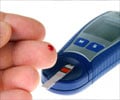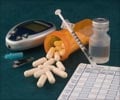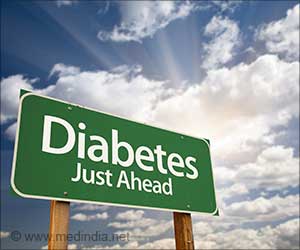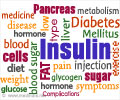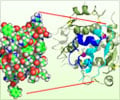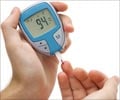Goal of A Diabetes Diet Plan
The goal of a diabetes diet plan is to provide a mixture of carbohydrates, proteins and fats at each meal at an appropriate calorie level to provide essential nutrients as well as create an even release of glucose into the blood from meal to meal and from day to day.
Diabetics always need to take care about the food they eat because all foods contain not only carbohydrate, but also some energy value.
Carbohydrates
Compared to fats and protein, carbohydrates have the greatest impact on blood sugar. The rise in blood sugar level following a meal is due to absorption of glucose from a carbohydrate digestion and increase in production of glucose by liver. Evidence now suggests that it is the total amount of carbohydrates rather than the specific type that most directly affects blood glucose. Carbohydrate types are either complex (as in starches) or simple (as in fruits and sugars). One gram of carbohydrates equals four calories. The current general recommendation is that carbohydrates should provide between 50-60% of the daily caloric intake.
In all cases, complex carbohydrates found in whole grains and vegetables are preferred over those found in starch-heavy foods, such as pastas, white-flour products and potatoes.
Fiber
Fiber is an important component of many complex carbohydrates. It is almost always found only in plants, particularly vegetables, fruits, whole grains, nuts, and legumes (beans and peas). Studies suggest that diets rich in fiber from whole grains reduce the risk for type 2 diabetes. Sources include wholegrain breads, brown rice, and bran.
Proteins
Experts recommend that proteins should provide12-20% of daily calorie intake. Some believe that anyone with diabetes other than pregnant women should restrict protein to about 0.4 grams for every pound of their ideal body weight, about 10% of daily calories. One gram of protein provides four calories. Protein is commonly recommended as part of a bedtime snack to maintain normal blood sugar levels during the night, although studies are mixed over whether it adds any protective benefits against nighttime hypoglycemia. If it does, only small amounts (14 grams) may be needed to stabilize blood glucose levels.
Fats
One gram of fat provides nine calories.
About two-thirds of cholesterol in the body does not come from cholesterol in food but is manufactured by the liver, its production stimulated by saturated fat(mostly found in animal products). The dietary key to managing cholesterol,then, lies in understanding fats and oils.
Reducing consumption of saturated fats and trans-fatty acids is the first essential step in managing cholesterol levels through diet. Saturated fats are found predominantly in animal products, including meat and dairy products. They are strongly associated with higher cholesterol levels. Trans-fatty acids are manufactured fats created during a process called hydrogenation, which is aimed at stabilizing polyunsaturated oils to prevent them from becoming rancid and to keep them solid at room temperature. Polyunsaturated fats are found in safflower, sunflower, corn, and cottonseed oils and fish.
Reduce the consumption of fatty foods - cheese, butter and whole milk dairy products.
Healthy fats include unsaturated fats, which are obtained from plant and fish sources and are liquid at room temperature (monounsaturated fats). They are mostly present in olive, canola, and peanut oils and in most nuts.Omega-3 fatty acids are also helpful for health.
Salt intake
Use salt in moderation. A high salt intake has been linked to high blood pressure. Sodium intake of no more than 3000 mg per day is suggested. For people with high blood pressure, sodium should be limited to 2400 mg per day or as advised by the physician.
Alcohol Consumption
Drink alcohol in moderation. A maximum of three units of alcohol per day for men, two for women is recommended.






